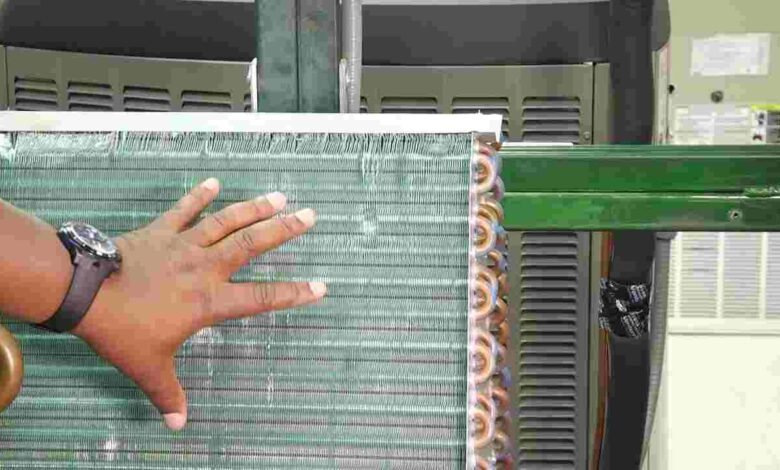
In the HVAC industry, coil failures are a common yet preventable issue that can lead to costly repairs, increased energy consumption, and a decrease in system efficiency. Understanding the primary causes of these failures is crucial for professionals in the building and home sectors, as it allows them to diagnose problems faster, prevent future breakdowns, and ultimately improve the performance of HVAC systems. This article will explore the most common reasons behind coil failures and provide actionable insights on how to mitigate them – service ac jakarta.
1. Corrosion and Chemical Damage
One of the leading causes of coil failures is corrosion, which is typically driven by environmental factors and chemical exposure. HVAC coils are often located in harsh conditions, exposed to moisture, pollutants, and chemicals that can degrade their surfaces over time.
How Corrosion Occurs:
Saltwater Exposure: For systems located near coastal areas, salty air can accelerate the corrosion process.
Chemical Vapors: Cleaning agents, industrial pollutants, or even chlorine gas in some environments can corrode metal coils.
Preventive Measures:
Protective Coatings: Coating the coils with a corrosion-resistant layer helps prevent direct exposure to harmful elements.
Regular Cleaning and Inspections: Conducting routine checks to remove dust, debris, and corrosive materials can extend the life of coils.
2. Improper Maintenance
Lack of regular maintenance is a significant factor that leads to coil failures in HVAC systems. Without scheduled upkeep, coils can accumulate dirt and grime, which impacts the heat transfer efficiency and forces the system to work harder than necessary. Over time, this results in the coils breaking down prematurely.
How Improper Maintenance Affects Coils:
Dirty Coils: Dust and debris can block airflow, causing coils to overheat and degrade.
Refrigerant Leaks: Without regular inspections, refrigerant levels may drop, causing the coils to freeze and deteriorate.
Preventive Measures:
Scheduled Maintenance: Implementing a preventive maintenance plan that includes cleaning, refrigerant checks, and part replacements will ensure the coils remain in good condition.
Use of Air Filters: Installing quality air filters and changing them regularly helps prevent debris buildup on coils.
3. Overheating
Overheating is another major cause of coil failure. When the HVAC system is improperly sized or runs for long periods without adequate rest, the coils can overheat, causing damage to the coil’s metal components.
How Overheating Occurs:
Improper Sizing: A system that is too small for the area it serves will have to work harder, which can lead to coil overheating.
Blocked Vents or Restricted Airflow: If the airflow is obstructed, the coils will have to work harder to cool or heat the space, leading to excessive heat buildup.
Preventive Measures:
Proper System Sizing: Ensure that HVAC systems are properly sized for the space they are cooling or heating.
Clear Air Vents: Ensure that air vents and ducts are free from obstructions to maintain optimal airflow.
4. Refrigerant Imbalance
Refrigerant plays a key role in cooling and heating functions, so an imbalance in refrigerant levels can directly affect coil performance. Low refrigerant levels can cause the coils to freeze, while excess refrigerant can lead to higher-than-normal pressures, ultimately damaging the coils.
How Refrigerant Imbalance Affects Coils:
Low Refrigerant Levels: Insufficient refrigerant can cause coils to freeze over, reducing their efficiency and leading to potential rupture or failure.
High Refrigerant Levels: Too much refrigerant creates excessive pressure, which may cause coil damage, leaks, or failure.
Preventive Measures:
Routine Refrigerant Checks: Regularly check refrigerant levels and ensure there are no leaks in the system. This helps maintain proper pressure and prevent coil damage.
Leak Repairs: Promptly repair any refrigerant leaks to avoid long-term damage to coils.
5. Age and Wear
As with any mechanical system, HVAC coils naturally degrade with age. Over time, metal components wear down, and efficiency decreases. This wear and tear is especially prevalent in systems that have been in service for many years without adequate maintenance.
How Age Contributes to Coil Failure:
Metal Fatigue: Continuous heating and cooling cycles put stress on metal coils, leading to cracks, leaks, and eventual failure.
Deterioration of Insulation: As the insulation around the coils breaks down, it can lead to heat loss and further coil damage.
Preventive Measures:
Replacement of Old Coils: Regularly inspect the system for signs of age-related wear, and replace coils before they fail.
Upgrading HVAC Units: If the system is aging, consider replacing it with a newer, more energy-efficient model that can better withstand wear and tear.
Conclusion
Coil failures are a significant concern for both residential and commercial HVAC systems, but many of these failures can be prevented with proper care and attention. By understanding the common causes of coil damage—corrosion, improper maintenance, overheating, refrigerant imbalances, and age—building professionals and homeowners can take proactive steps to ensure their HVAC systems run smoothly and efficiently. Regular inspections, preventive maintenance, and addressing issues promptly will not only extend the life of HVAC coils but also reduce energy consumption and avoid costly repairs in the future.


